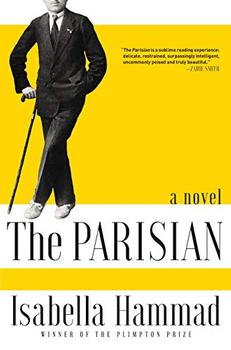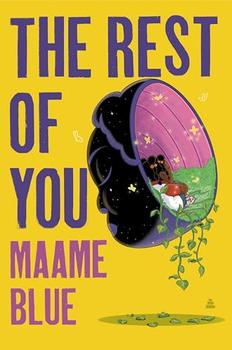Summary | Excerpt | Reading Guide | Reviews | Beyond the book | Read-Alikes | Genres & Themes | Author Bio

An inventive, exuberant novel that takes us from the shimmering dunes of ancient Egypt to the war-torn streets of twenty-first-century Lebanon.
In 2003, Osama al-Kharrat returns to Beirut after many years in America to stand vigil at his father’s deathbed. The city is a shell of the Beirut Osama remembers, but he and his friends and family take solace in the things that have always sustained them: gossip, laughter, and, above all, stories.
Osama’s grandfather was a hakawati, or storyteller, and his bewitching stories—of his arrival in Lebanon, an orphan of the Turkish wars, and of how he earned the name al-Kharrat, the fibster—are interwoven with classic tales of the Middle East, stunningly reimagined. Here are Abraham and Isaac; Ishmael, father of the Arab tribes; the ancient, fabled Fatima; and Baybars, the slave prince who vanquished the Crusaders. Here, too, are contemporary Lebanese whose stories tell a larger, heartbreaking tale of seemingly endless war—and of survival.
Like a true hakawati, Rabih Alameddine has given us an Arabian Nights for this century—a funny, captivating novel that enchants and dazzles from its very first lines: “Listen. Let me take you on a journey beyond imagining. Let me tell you a story.”
Excerpt
Listen. Allow me to be your god. Let me take you on a journey beyond imagining. Let me tell you a story.
A long, long time ago, an emir lived in a distant land, in a beautiful city, a green city with many trees and exquisite gurgling fountains whose sound lulled the citizens to sleep at night. Now, the emir had everything, except for the one thing his heart desired, a son. He had wealth, earned and inherited. He had health and good teeth. He had status, charm, respect. His beautiful wife loved him. His clan looked up to him. He had a good pedicurist. Twenty years he had been married, twelve lovely girls, but no son. What to do?
He called his vizier. “Wise vizier,” he said. “I need your help. My lovely wife has been unable to deliver me a son, as you know. Each of my twelve girls is more beautiful than the other. They have milk-white skin as smooth as the finest silk from China. The glistening pearls from the Arabian Gulf pale next to their eyes. The ...
The Hakawati, like any good novel, isn't for everyone. Reading it takes a little practice, a little pacing, and if you're really lucky, one empty weekend to devour it whole. My advice to potential readers is this: Surrender to this hakawati. Get on his magic carpet, and let him tell you a story. In fact, let him tell you one thousand stories. He'll handle all the details, and you can sit back and enjoy the ride...continued
Full Review
 (389 words)
(389 words)
(Reviewed by Lucia Silva).
Once upon a time, not terribly long ago, hakawatis, or storytellers, were commonplace fixtures on Middle Eastern streets. As coffee-drinking gained popularity in Ottoman times, the hakawatis moved from the streets into the coffee houses. Hakawatis were paid by the owners of the coffee houses to draw customers, and the best could also expect tips from their audience. Hakawatis were known for their dramatic performances, and were consummate entertainers. The rise of radio and television brought the demise of this ancient Arab tradition of public storytelling, and hakawatis all but disappeared from the Middle East by the 1970's. Listen to an NPR interview with the last full-time hakawati in the Syrian capital of Damascus. ...

If you liked The Hakawati, try these:

by Isabella Hammad
Published 2019
A masterful debut novel by Plimpton Prize winner Isabella Hammad, The Parisian illuminates a pivotal period of Palestinian history through the journey and romances of one young man, from his studies in France during World War I to his return to Palestine at the dawn of its battle for independence.

by Susan Barker
Published 2016
An original novel about a Beijing taxi driver whose past incarnations over one thousand years haunt him through searing letters sent by his mysterious soulmate.




The less we know, the longer our explanations.
Click Here to find out who said this, as well as discovering other famous literary quotes!